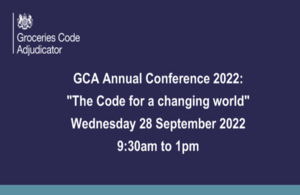Questions and Answers: CSSF Call for Proposals
The CSSF team has received a large number of questions on the call for proposals published on the 21st June. Many questions received were broadly similar and have been grouped together with answers below.
Question: The call for proposals states projects must commit to deliver a project in line with HMG policy. What is this policy and what does it include?
Answer: HMG stands for Her Majesty’s Government and this refers to the policy of the Government of the United Kingdom of Great Britain and Northern Ireland. Of course there would not be enough space within this post to describe all of UK government policy in Israel and the OPTs, however some broad elements to keep in mind are below.
- The UK’s longstanding position on the Middle East Peace Process is clear: we support a negotiated settlement leading to a safe and secure Israel living alongside a viable and sovereign Palestinian state; based on 1967 borders with agreed land swaps, Jerusalem as the shared capital of both states, and a just, fair, agreed and realistic settlement for refugees
- The UK is committed to making progress towards a two-state solution. We believe that negotiations will only succeed when they are conducted between Israelis and Palestinians, supported by the international community
- The UK is in regular dialogue with both the Palestinian Authority and the Government of Israel in which we reiterate the need for both sides to prepare their populations for peaceful coexistence, including by promoting a more positive portrayal of one another to contribute to building the conditions needed for peace.
Question: Does the term ‘Palestinians’ refer only to Palestinians living in the Occupied Palestinian Territories (East Jerusalem/West Bank and Gaza) or does this also refer to Palestinian citizens of Israel residing within the green line?
Answer: The UK government will welcome proposals for any project that meets the goals and objectives set out in the Published call. In this context the call for bids will welcome projects that engage with individuals and groups including, but not limited to, Jewish Israeli’s, Israeli Arabs/Palestinian citizens of Israel and Palestinians living in the Occupied Palestinian Territories. The proposal must however demonstrate how it will impact the objective of ensuring that “Women are central in building support for and increasing political prospects of achieving the 2 state solution”.
Question: Who is eligible to apply for CSSF funding?
Answer: There are no set eligibility criteria for submission. An organisation can be eligible for funding if they propose a project that meets the requirements set out in the call for proposals. Israeli, Palestinian or international organisations may submit an application.
Question: Can the project be extended past March 2023?
Answer: No. Funds are allocated in yearly cycles. Funds allocated for a given financial year, running between April and March, cannot be spent after the end of that financial year. Funds allocated to project activities in this financial year must therefore be spent on activities that take place on or before 31st March 2023 and activities that take place after that date cannot be included within the project.
Question: Can organisations submit more than one proposal?
Answer: Yes, we will welcome all proposals for projects that meet requirements detailed in the published call. If an organisation wishes to submit more than one proposal these will be reviewed separately and on their own merits.
Question: When do you expect a final decision will be reached?
Answer: The deadline for submission is the 18th July. The CSSF team will endeavour to process the submissions and come to a decision as soon as possible, however the length of time until a decision is made will be dependent on the number and quality of submissions.
Question: Can organisations submit a proposal jointly with another organisation?
Answer: Yes, certainly. However the proposal should be submitted on behalf of one organisation with the other organisation listed as a partner. Payment can only be made to one organisation and then can be transferred to downstream partners for particular activities as part of a single project.
Question: Can organisations include overhead in the budget under this call for proposals?
Answer: Yes overhead costs can be included in the budget of a project but these costs can only make up a maximum of 10% of the entire project budget. For example, for a project costing £380,000, £38,000 of the total can go toward overhead costs such as office rent or electricity. As outlined in the call for bids; the relevant section reproduced below:
Bidders are required to differentiate in the Annual Budget between their:
(a) Administrative Costs (e.g.: general administration and support costs; office maintenance, repair and running costs; accountants, HR, and senior managers; other cross-cutting staff costs not directly attributable to a single project and are shared across the implementer’s business platform and any mandatory operational or legal costs incurred by an implementer in order to operate in a given location administrative staff salaries, office maintenance, repair and running costs).
(b) Project Costs which should include all project associated costs including implementing staff costs, travel, M&E costs. Please explain clearly, what you have included in each category.
Administrative costs must not exceed 10% of the total project budget.
